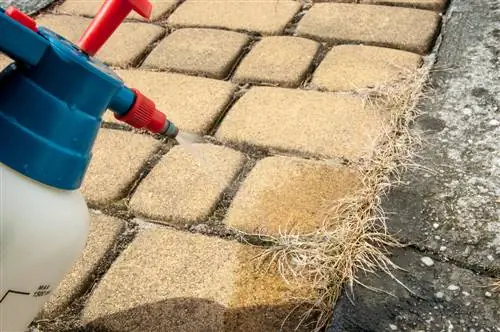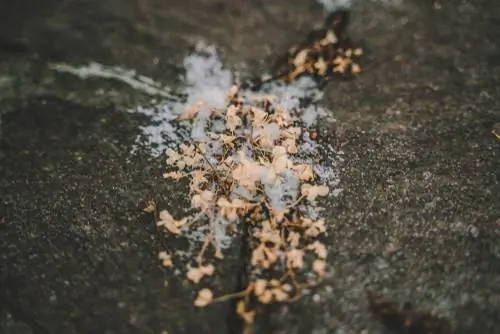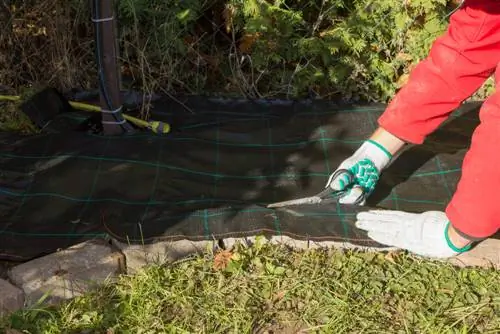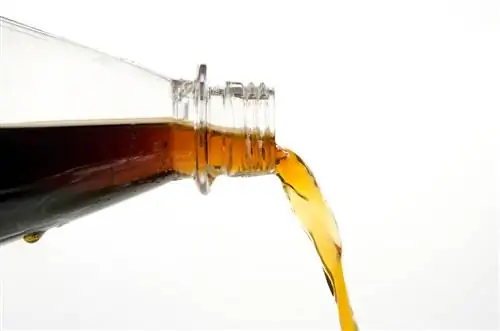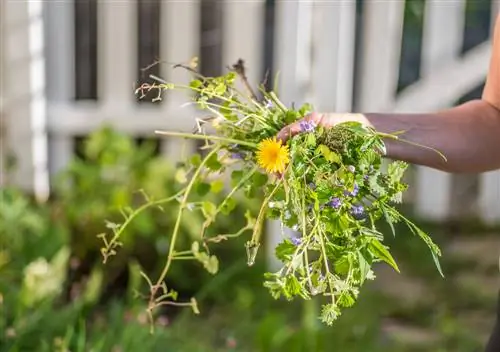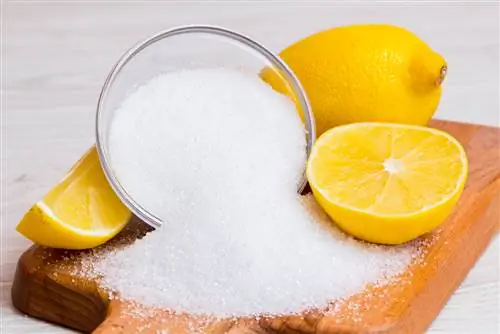- Author admin leonars@hobbygardeners.com.
- Public 2023-12-16 16:46.
- Last modified 2025-01-23 11:21.
There are many remedies that can be helpful in the fight against weeds. In addition to weeding, a protective layer of mulch or herbicides, a variety of home remedies are recommended. This also includes the corrosive substance chlorine, which is contained in various concentrations in some household cleaning products.
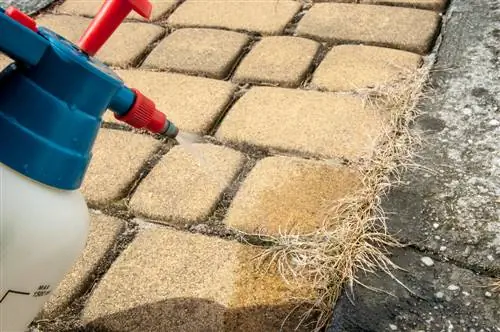
Can you use chlorine against weeds?
Chlorine for weeds should be used sparingly and carefully as it can be risky for people and the environment. A weak solution (80% water and 20% chlorine) can kill weeds, but mechanical weeding or bed covers are more environmentally friendly alternatives.
What is chlorine?
This substance is a pungent, yellow-green gas. It has a highly toxic effect on living beings and kills plants, but also microorganisms such as algae or bacteria. Chlorine is one of the most frequently used disinfectants and ensures bacteria-free water in swimming pools, for example.
The substance also occurs in nature as chloride in the form of an aqueous solution. If plants are oversupplied with chlorine, symptoms of poisoning occur. How much active ingredient the plants can tolerate varies. Almost all plants can tolerate chlorine up to a value of 0.3 milligrams per liter without suffering permanent damage.
How does chlorine work?
If used incorrectly, chlorine poses a high risk to people and the environment:
- It is highly corrosive, so you should never handle chlorine without gloves and/or suitable clothing.
- Chlorine gas attacks the respiratory system.
- The product not only causes damage to weeds, but often also to neighboring plants.
- Due to the difficulty in dosing, it should only be used in the garden with great caution.
How can we kill weeds with chlorine?
If you want to tackle weeds with chlorine despite all the risks, you should definitely take these precautionary measures:
- Highly dilute the liquid chlorine before use. The mixing ratio should not exceed 80 percent water to 20 percent chlorine.
- When using, wear special gloves (€7.00 on Amazon) to avoid skin damage.
The use of chlorine on sealed surfaces
Plant protection products must not be used on sidewalks, paved driveways or patios. This also includes chlorine if you want to use this preparation to destroy annoying weeds. Violations of the law can be punished with fines of up to 50,000 euros.
Tip
Although weeds in the garden can be eliminated quite effectively with chlorine, this process is not gentle on the environment. Since it can damage neighboring plants in beds, other methods such as mechanical weeding or a bed cover to prevent weeds should be preferred.

